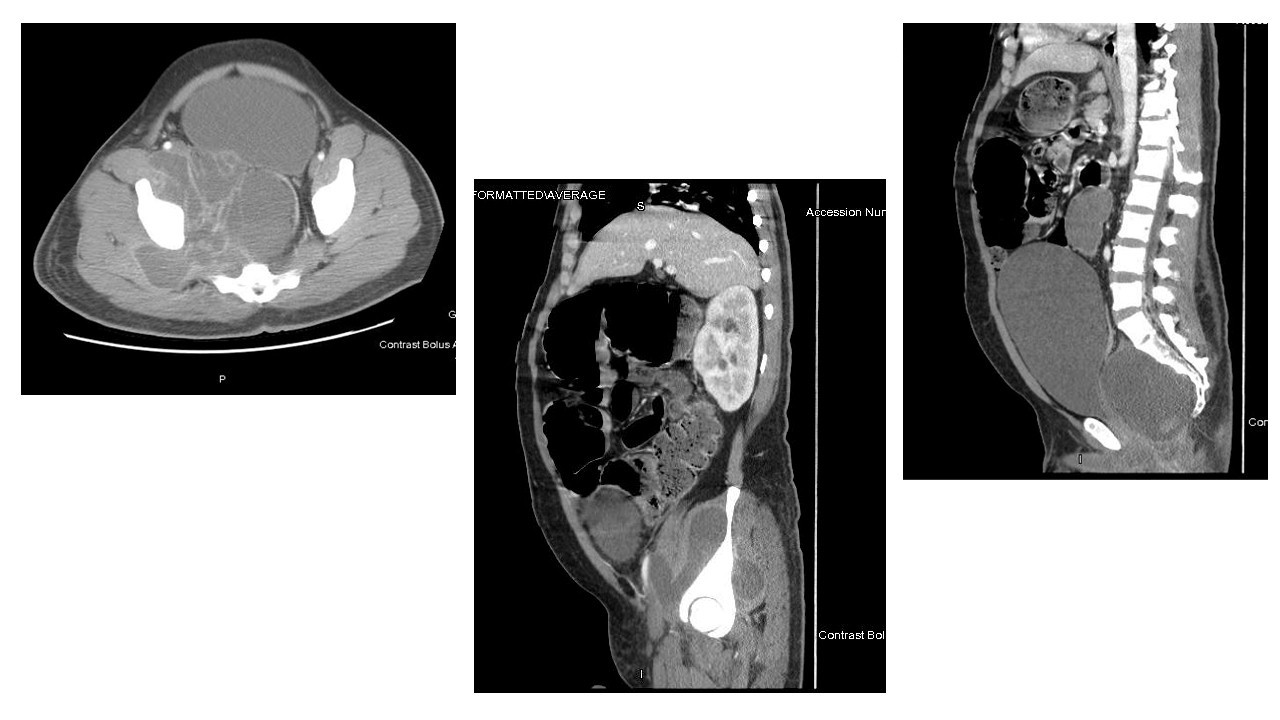|
Back to 2018 Posters
PELVIC OUTLET OBSTRUCTION SECONDARY TO RETROPERITONEAL SALMONELLA BOVISMORBIFICANS ABSCESS
Katherine Kramme, Kristofer Nava, Shaan Manawar, Saad Shebrain*
Surgery, Western Michigan University Homer Stryker MD School of Medicine, Kalamazoo, MI
Introduction:
Salmonella bovismorbificans, a serovar of Salmonella enterica, is a rare cause of foodborne illness in the United States. While 40,000 cases of salmonellosis are reported each year in the United States, Salmonella enterica serotype Bovismorbificans was only associated with 758 cases of gastrointestinal illness between 1999 and 2009. Outbreaks attributable to this serovar within the United States have been previously linked to contaminated alfalfa sprouts and tahini (a chickpea product). This serovar as a cause of an intra-abdominal abscess is a rare finding.
Case Presentation:
We present a case of a 30-year-old Hispanic male, with complaint of abdominal pain, obstipation, and severe abdominal distention, and urinary retention. A 17-cm multiloculated cystic pelvic mass resulting in large bowel obstruction and obstructive uropathy was identified on computed tomography. The patient was urgently taken to the operating room for diverting transverse loop colostomy. Foley catheter was inserted to relive obstructive uropathy. Subsequent CT-guided drainage of the abscess revealed Salmonella enterica serovar Bovismorbificans. After 2 weeks course of antibiotics, a follow up CT was performed and showed near complete resolution of the retroperitoneal abscess. Two months later, a colonoscopy was performed and showed no evidence of colonic pathology. The patient subsequently underwent uneventful colostomy reversal.
Discussion:
Salmonella is a well-known cause of foodborne illness worldwide. However, S. bovismorbificans is rare cause of foodborne gastroenteritis within the United States. Outbreaks in the United States have been previously associated with tahini and alfalfa sprouts. Isolated cases of S. bovismorbificans infection have been reported; the most common presentation is acute gastroenteritis. It is rare for this organism to presents as a retroperitoneal abscess causing pelvic outlet obstruction, requiring acute surgical intervention.
Conclusion:
Retroperitoneal abscess due to Salmonella enterica serovar Bovismorbificans is rare and can present without exposure to known sources. Infection and abscess can be treated successfully in a conventional manner with image-guided drainage and appropriate antibiotic therapy, however, acute colonic obstruction most likely to require surgical intervention.

Back to 2018 Posters
|

